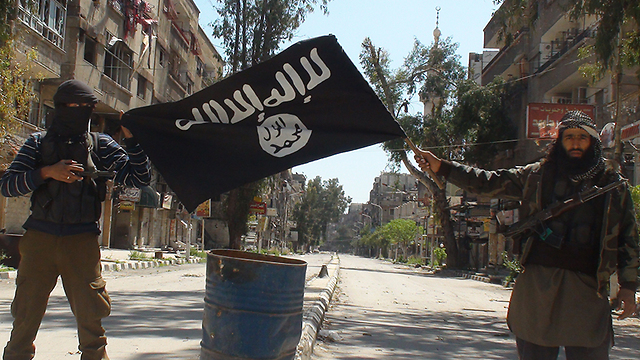Israel’s moral duty in southern Syria
Yakub Halabi, i24News/Ynetnews /Published: 05.02.15
Op-ed: Israel should show that it is ready to do everything possible to prevent other minorities from suffering the same fate as Europe’s Jews during the Holocaust.
The main lesson that Israel should draw from the Holocaust is that Israel should always be ready to act as a gatekeeper for protecting minorities facing the threat of genocide or mass murder. After all, Israel persists in criticizing western allies for not having done enough to help save the Jews during World War II.
During the last few years, however, minorities in Iraq and Syria, such as the Yazidis, Druze and Christians, have been threatened with mass murder and the question now is: what should Israel do to help them? Minorities in the Middle have been Israel’s best allies in the region even before the establishment of the state, including the Maronites in Lebanon, the Circassians and above all the Druze.
The Druze in Syria are currently stuck between a rock and a hard place: the Assad regime on the one hand and the Islamic State (IS) group on the other. They must either fight for the former’s fascist regime or else suffer under it and if, God forbid, their province falls into the hands of IS, they will be doomed to mass extermination.
They are faced with either fighting an unjust war and sacrificing their young men, or a threat to the existence of the whole community, thus neutrality for them is out of question. A few weeks ago, a delegation from Jabal al-Druze (Mountain of the Druze) was invited to the presidential palace in Damascus and was told rather bluntly by Assad’s close adviser, Luna Shibl, that, “you must fight with the regime, whether you like it or not.”
Islamic State forces have reached the outskirts of Sweida province and the Druze understand that their fate would be similar to that of the Yazidis in Iraq if the jihadist group manages to reach their region. Under these circumstances, Israel should pursue humanitarian intervention in Syria by creating a security zone in southwestern Syria that will extend from the Golan Heights in the west to the Sweida province in the east. This security zone should be founded on the same model as the “Security Belt” that Israel established in southern Lebanon up until the year 2000.
Based on this model, Israel would occupy the area and establish an army composed of local citizens who would protect it. This zone should mainly constitute a refuge for Syrians who are fleeing the fighting, but are blocked from either entering neighboring countries or seeking shelter in Europe.
Unfortunately, US air raids in Syria and Iraq as well as the training of the Free Syrian Army have hitherto failed to alter conditions on the ground. Establishing a security zone in southern Syria would be a game changer. The Southern Front (another rebel group) could join forces with the Free Syrian Army in defeating both the Assad regime and IS.
Since the Syrian civil war’s inception, Israel’s aid to the Syrian people in their harsh time has been confined to admitting a few hundred wounded citizens to its hospitals. Yet, given the long Jewish history of persecution, Israel cannot look the other way as innocent people are being killed in a neighboring country. After all, Israel should demonstrate that it is ready to do all that is possible to prevent what befell the Jews during the Holocaust from happening to other minorities living next door to it.
Israel’s humanitarian intervention is not purely humanitarian, however. The potential liquidation of these minorities means that Israel would lose its best sub-state allies in the Middle East. These minorities have always been the gatekeepers of secularism and modernity in the Arab/Muslim world. Finally, Israel should declare that it would have no intentions of occupying this security zone forever and that it would withdraw from it once Syria is stabilized under a humane regime.
***Yakub Halabi is an Arab citizen of Israel, assistant professor of international relations and fellow at the Azrieli Institute of Israel Studies, Concordia University in Montreal, Canada.


















